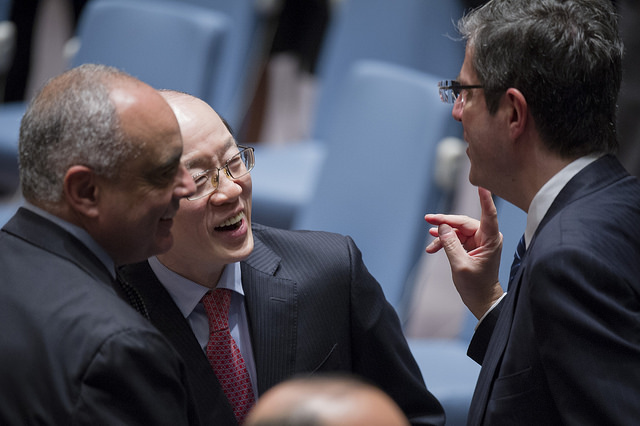Updated
Western Sahara: Anybody on the Same Page? – Robert M. Holley

Security Council Extends Mission in Western Sahara United Nations Photo
Robert M. Holley
July 25, 2018
At the end of April, the Security Council surprised many observers by renewing the MINURSO mandate for only six months rather than a year, as had been the usual practice over the last decade. That raised a number of questions: Why the change? What did it hope to accomplish?
If the intention was to give the new Personal Envoy a boost by suggesting greater Security Council attention to the issue through a more “urgent” deadline for a review, there is no evidence to date that the shorter fuse has produced any shift in anyone’s position on the core questions.
There are a lot of obstacles in the way of a solution to this problem, but not the least of them is that the Security Council and the Secretary General’s Personal Envoy are working at cross-purposes. And that has been true for a long time. Indeed, in my view, they have been at cross-purposes since the days of James Baker, and have remained so through the tenures of Van Walsum, Ross and now Kohler.
In 2003 the Council endorsed the need for a “mutually acceptable political solution” that also respected the principle of “self determination.” However, the Council has never explained what it means by either of these ideas. Baker put two specific proposals on the table during his tenure – one not so bad and the other not so good – but the Council refused to endorse either of them or suggest that either should form the basis of a negotiation. Periodically, the Council expresses some positive appreciation of Morocco’s autonomy initiative, as have some members of the Council. However, these fairly anodyne endorsements have failed to move any of the Parties an inch towards anything that might be “mutually acceptable.”
What is the problem here?
The problem is that while the Secretary General and his various rotating Personal Envoys may be after a solution to this problem, the Security Council itself, and most especially some of its most powerful permanent members, have been more than content to perpetuate the status quo. That is probably most true in Washington, but it holds good for other Permanent Five members as well. Meaning, the Council and the Secretary General’s Personal Envoys have never been on the same page – and they still are not.
It simply is not reasonable to expect that Mr. Kohler is going to produce any sort of magic wand, in any time frame, that eluded his predecessors while the Council itself and its most powerful members continue to obfuscate and dither in favor of the enduring stalemate. The Secretary General may claim the status quo is not sustainable and raise red flags about the deteriorating security circumstances in the region as a reason to get off the fence with this problem, but until some important Council members decide to bite the bullet and make a positive decision about what is needed to fix this, it seems unlikely the Parties themselves will move any closer to a productive negotiation. This is the reality of Western Sahara. It is not “fake news.”
So come October, we will likely be where we were in April. In my next blog I will explore some of the non-decisive options the Council could seize upon in October to give the impression of movement – and try to suggest why some of those options may indeed produce “movement,” but not necessarily any “progress.”
